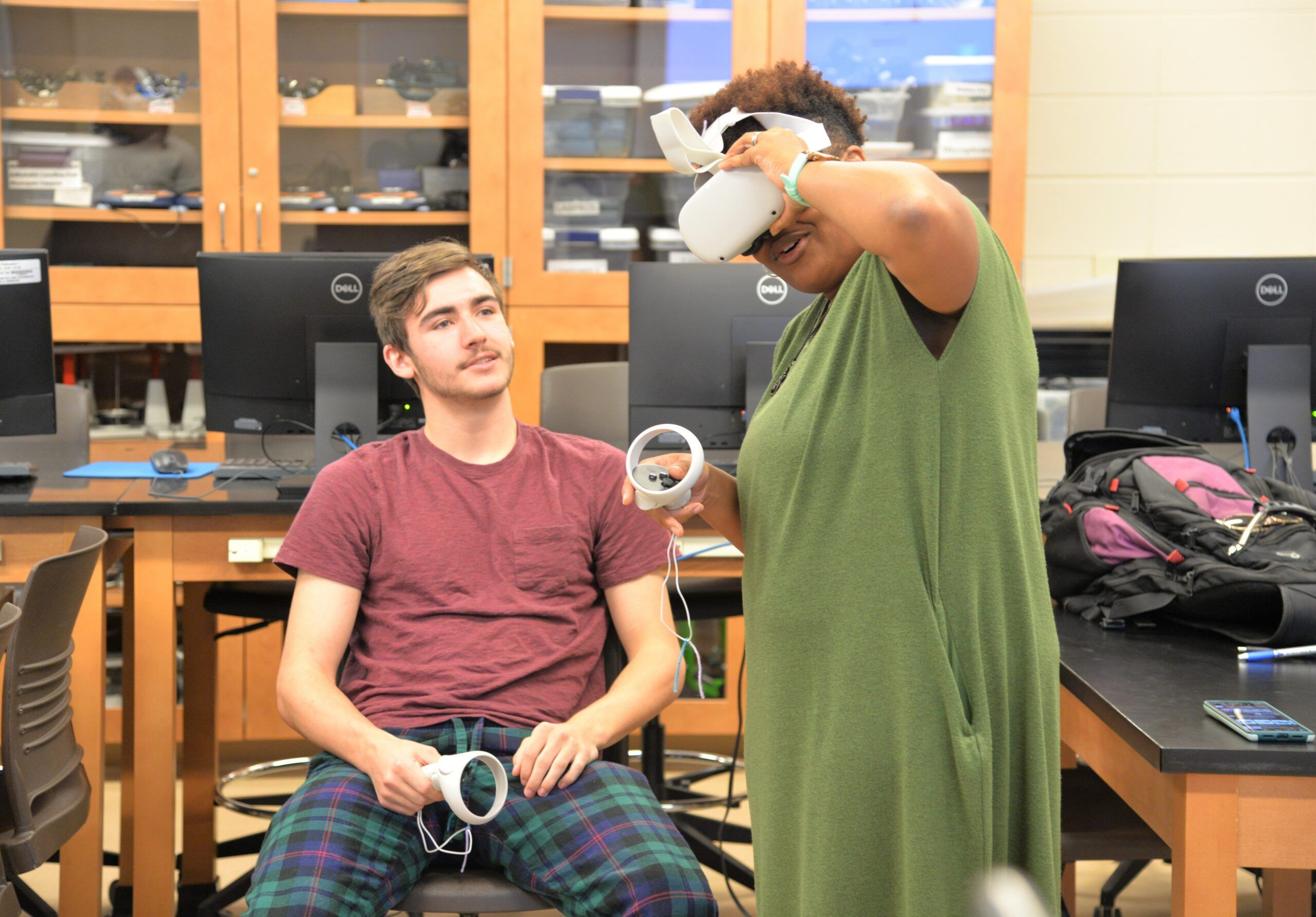
Bringing Virtual Reality into the Classroom
Assistant Professor of Physics Dr. Patrice Edwards isn’t a novice when it comes to virtual reality. She’s had her own virtual reality headset for some time, but now she, along with four other faculty are learning how to bring virtual reality into their classrooms with the help of XR Education and Innovations Labs (XREIL). XREIL is a cutting-edge development group at the College that creates engaging and immersive educational experiences. This semester, the team has been training faculty on virtual reality to enhance what they’re doing in the classroom.

“Virtual reality can be an engaging and effective tool for my physics, physical science and astronomy courses,” Edwards said. “It can help to engage students in my classroom beyond what is expected.”
Edwards shared some ways she hopes to use virtual reality in her classroom.
“I can use virtual reality to simulate experiments or real-world scenarios. This can be especially useful in STEM subjects, where students can conduct experiments or solve problems in a virtual environment,” Edwards said. “I can create immersive learning experiences that allow students to explore complex topics in a hands-on way. For example, I can have them experience a collision with the LHC at CERN.”

Edwards is referring to the Large Hadron Collider (LHC), the world’s largest and most powerful particle accelerator that was built by the European Organization for Nuclear Research (CERN), in Switzerland. Scientists use the LHC to test theoretical predictions in particle physics. Recently, students in Edwards’ Principles of Physics II course donned the Meta Quest 2 virtual reality headsets to take a 360 virtual tour of CERN, and go deep inside the LHC. No human can survive being inside the LHC during testing. Virtual reality can put students right in the middle of a particle collision to observe its activity. After spending some time with the headset, senior Mallory Boyd described her experience as interesting and immersive.
Edwards also shared that virtual reality can be a great tool for students with disabilities, and allows them to experience learning in new and accessible ways. She is eager to explore these ideas and other opportunities in the virtual world.

The faculty virtual reality pioneers are:
Lecturer of Mathematics Jamie Berrie (Department of Mathematics and Data Science)
Assistant Professor Physics Dr. Patrice Edwards (Department of Natural Sciences)
Assistant Professor of Geology Dr. Robin McLachlan (Department of Natural Sciences)
Assistant Professor of Psychology Dr. Aurora Ramos Nunez (Department of Social Sciences)
Professor of Psychology Dr. Brian Pope (Department of Social Sciences)